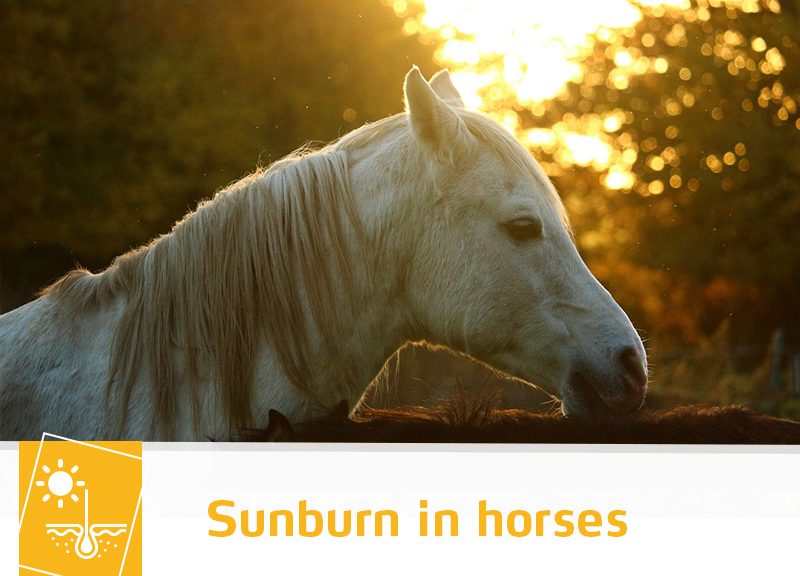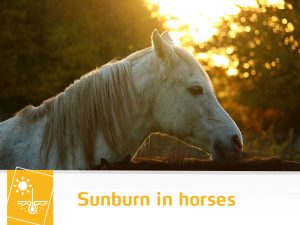Although the sun is often shy in our country it is important to keep in mind that when the sun comes out, it can cause damage to our horses’ skin.
The most susceptible horses to sunburn are the ones with white hair, light skin, and thin coats. Pigmentation in hair and skin is a natural barrier against ultraviolet light and horses lacking pigmentation will therefore lack some degree of protection. The most affected areas are usually the ones with less hair and less pigment such as the areas around the eyes, nostrils, muzzle and sometimes their heels.
Sunburn will cause redness, pain, peeling, and discomfort. It is not uncommon for owners not to realise their horse is uncomfortable due to sunburn but to notice their horse is suddenly reluctant to wear a halter or bridle or even a saddle (if the sunburn is over the back).
Excessive sun exposure and repeated skin damage can have serious long-term consequences. It can lead to thickening and scaling of the surface of the skin and in some cases this can evolve to skin cancer (squamous cell carcinoma).
The best way to prevent your horses from suffering from this condition is to ensure they have shady areas available to hide from the sun and to protect them with fly-masks with UV protection, fly sheets and high-factor, water-repellent sun creams. A practical solution is to stable the horse during the day, allowing him or her to graze from dusk to dawn.
When considering sunscreens, high-factor water-resistant creams safe for children can be used. Please keep in mind that these products need to be reapplied to be effective and that ideally, they should be used before your horse is affected by sunburn. Horses can become unwilling to let their owners apply the product once they already have painful skin areas due to sun exposure.
If you realise your horse’s skin is showing signs of sun damage it is recommended to bring them inside and if necessary contact your vet in order to proceed with adequate treatment. If your horse seems to be abnormally sensitive to sunlight it is also recommended to contact your vet since he or she may suffer from photosensitivity, a condition that may need a few adjustments in management and possibly medical treatment. We will explore this condition on our next blog post so keep an eye on our blog and Facebook page!
Would you like to know more about horses? Check our Equine Courses:

